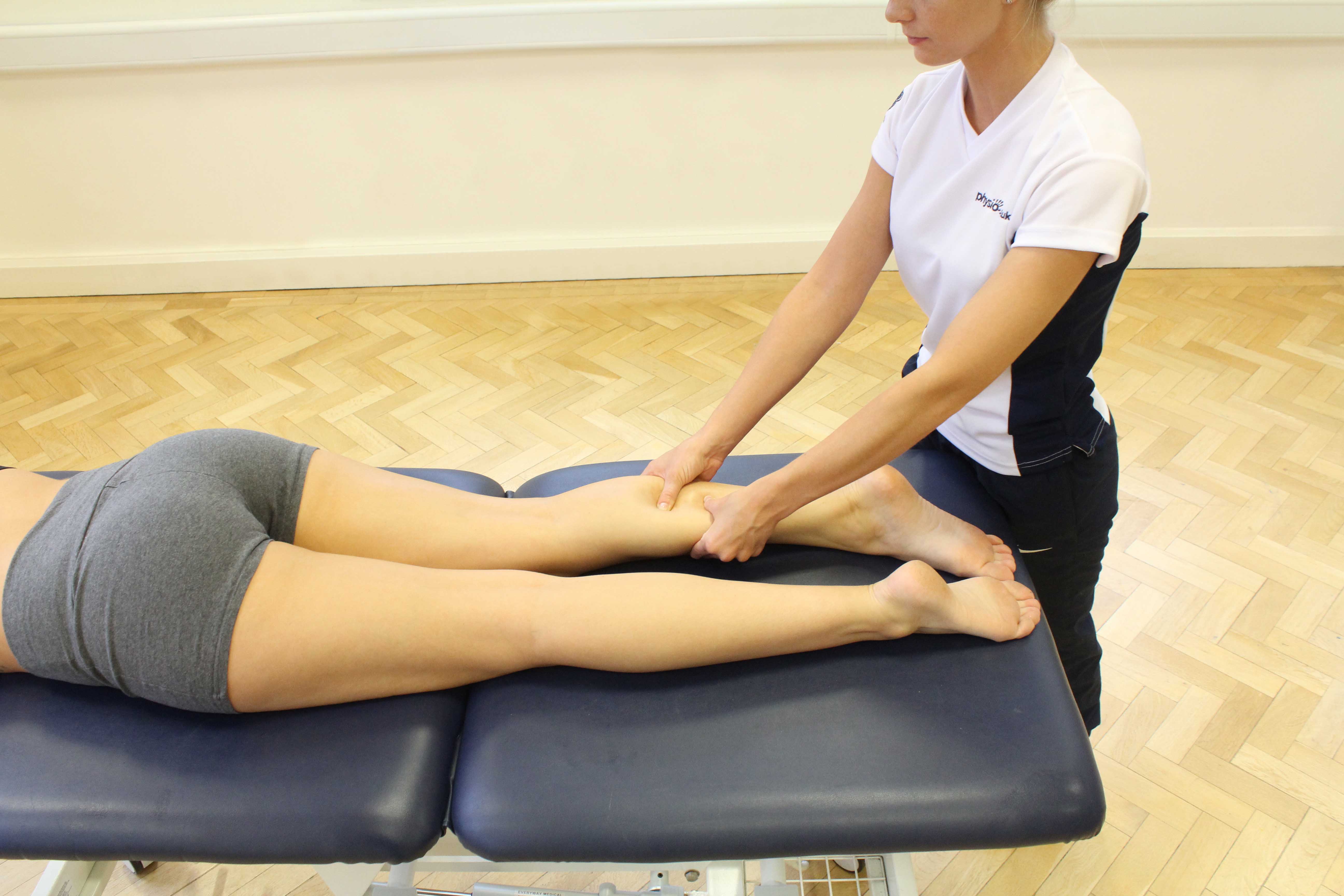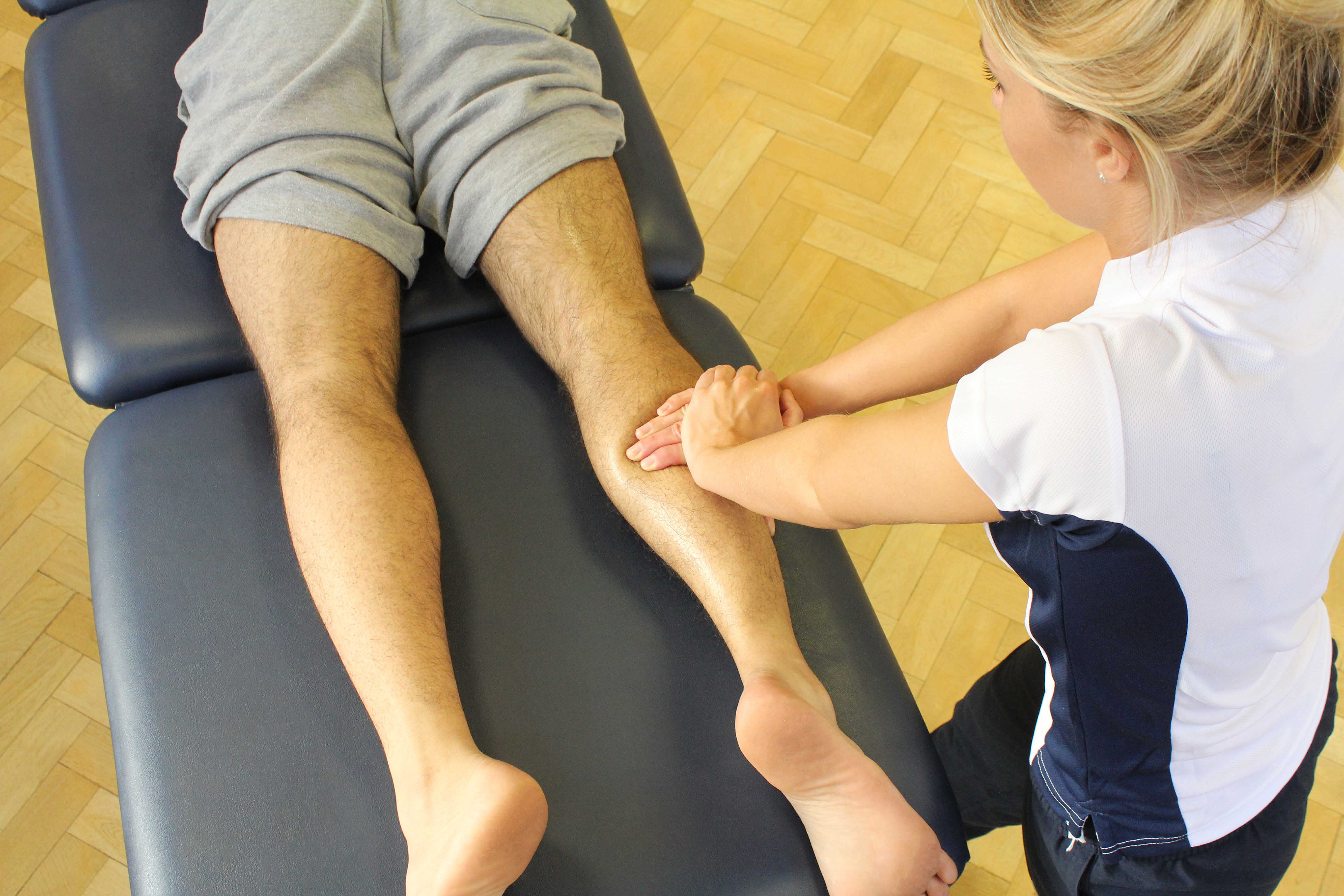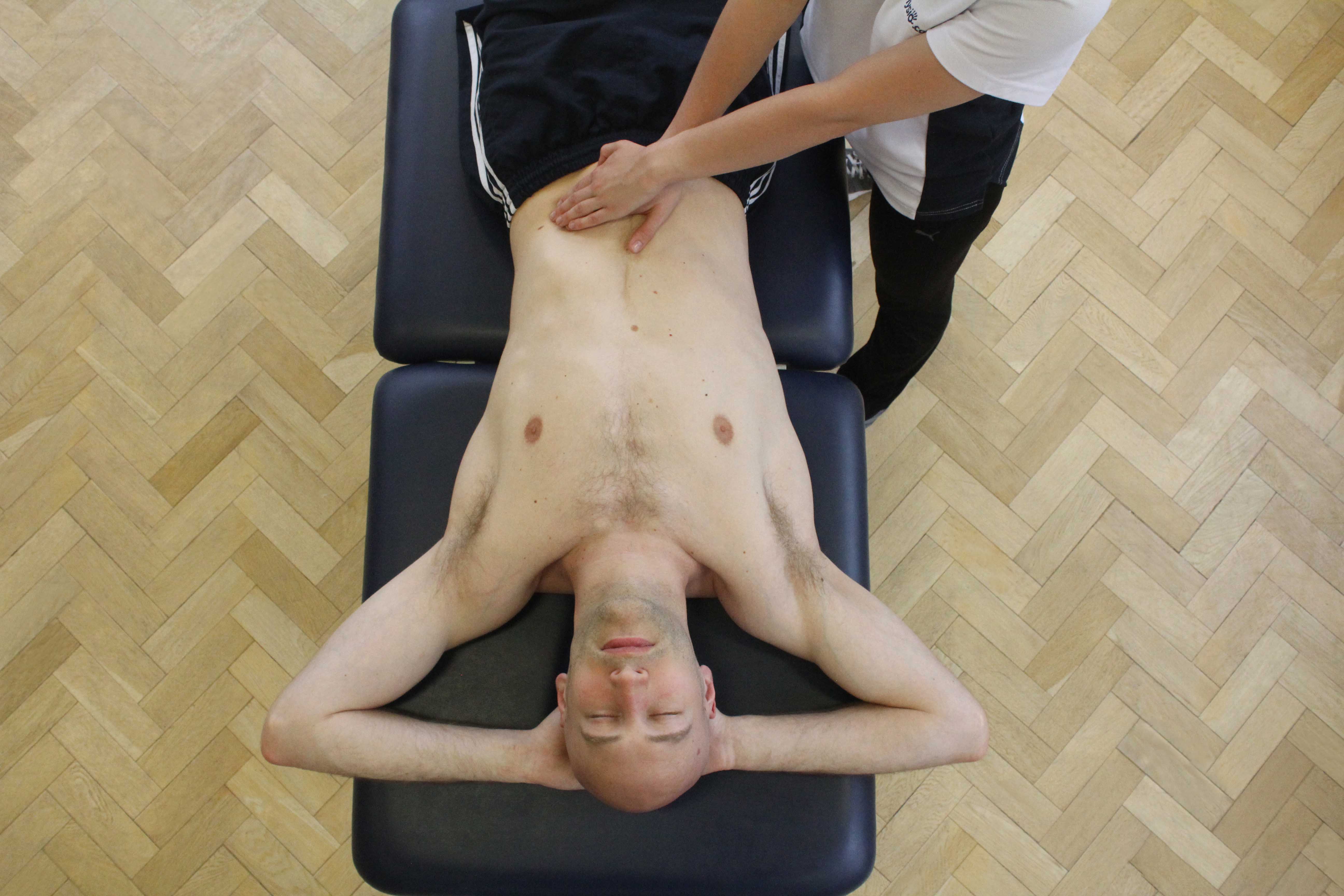What is deep posterior compartment syndrome?
The muscles in the lower leg are divided into a number of compartments by ‘sleeves’ of thick, inelastic connective tissue. The deep posterior compartment is the compartment directly behind the shin bone (tibia) and underneath the large calf muscle. Blood flow to this compartment is increased during exercise and the muscles within it increase in volume (swell). If there is not enough room inside the compartment to accommodate this increased muscle volume, compartmental pressure rises. This pressure can interfere with the blood flow to the muscles and nerves in the compartment, causing pain.
Potential causes of deep posterior compartment syndrome include; a rapid increase in the size and volume of the muscles within the compartment, unfamiliar vigorous exercise, or gradual tightening of the surrounding connective tissue ‘sleeve’. Physiotherapy is an excellent treatment for deep posterior compartment syndrome.
 Above: Trigger point massage applied to gastrocnemius muscle by specilaist therapist
Above: Trigger point massage applied to gastrocnemius muscle by specilaist therapistWhat are the symptoms of deep posterior compartment syndrome?
Deep posterior compartment syndrome causes pain along the inside edge of the shin bone (tibia). The pain may be described as aching, tightness, cramping or squeezing. It is generally worse during exercise or walking and does not settle until you stop. When you stop, the pain slowly disappears as the volume of the muscles and, therefore, the pressure within the deep posterior compartment returns to normal. Other symptoms may include:
What should I do if I have deep posterior compartment syndrome?
Deep posterior compartment syndrome can be a persistent problem unless it is appropriately diagnosed and treated. If you suspect that you may have deep posterior compartment syndrome you should arrange a physiotherapy appointment as soon as possible. In the meantime, you should avoid activities that bring on your pain.
What shouldn’t I do if I have deep posterior compartment syndrome?
If you suspect that you have deep posterior compartment syndrome, you should not attempt to exercise through the pain. This can make your problem much worse by causing further increases in pressure within the compartment.
 Above: Soft tissue massage of the gastrocnemius muscle by an experienced therapist
Above: Soft tissue massage of the gastrocnemius muscle by an experienced therapistPhysiotherapy treatment for deep posterior compartment syndrome.
Physiotherapy is important in the treatment of deep posterior compartment syndrome. Initially, your physiotherapist can diagnose your injury and its severity. Treatment may include: In some cases, surgery to cut the ‘sleeve’ of connective tissue surrounding the compartment is necessary, to relieve the pressure and allow the muscle to expand during exercise without increasing pressure.
Could there be any long-term effects from deep posterior compartment syndrome?
Deep posterior compartment syndrome does not produce any long-term effects, providing it is properly diagnosed and treated.
 Above: Leg strengthening exercises using one leg mini squats under supervision of specialist MSK physiotherapist
Above: Leg strengthening exercises using one leg mini squats under supervision of specialist MSK physiotherapistTo arrange an assessment with a specialist physiotherapist call Physio.co.uk on 0330 088 7800 or book online.

 0330 088 7800
0330 088 7800

































